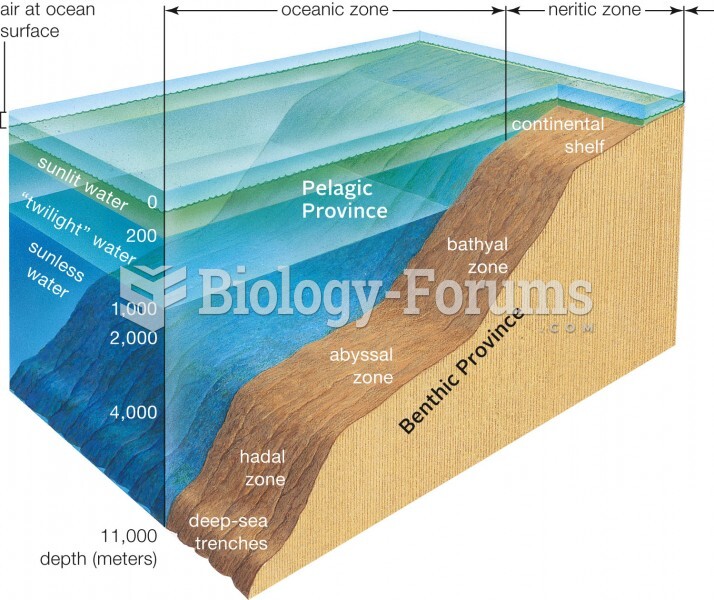|
|
|
There used to be a metric calendar, as well as metric clocks. The metric calendar, or "French Republican Calendar" divided the year into 12 months, but each month was divided into three 10-day weeks. Each day had 10 decimal hours. Each hour had 100 decimal minutes. Due to lack of popularity, the metric clocks and calendars were ended in 1795, three years after they had been first marketed.
A strange skin disease referred to as Morgellons has occurred in the southern United States and in California. Symptoms include slowly healing sores, joint pain, persistent fatigue, and a sensation of things crawling through the skin. Another symptom is strange-looking, threadlike extrusions coming out of the skin.
About 100 new prescription or over-the-counter drugs come into the U.S. market every year.
In the United States, there is a birth every 8 seconds, according to the U.S. Census Bureau's Population Clock.
For pediatric patients, intravenous fluids are the most commonly cited products involved in medication errors that are reported to the USP.







